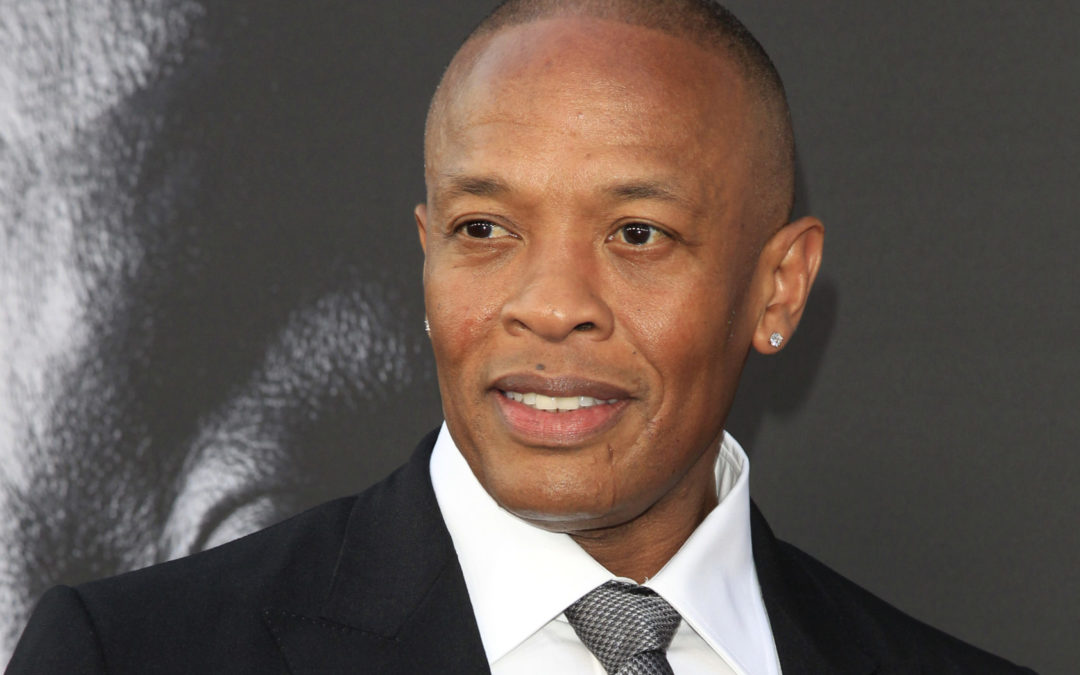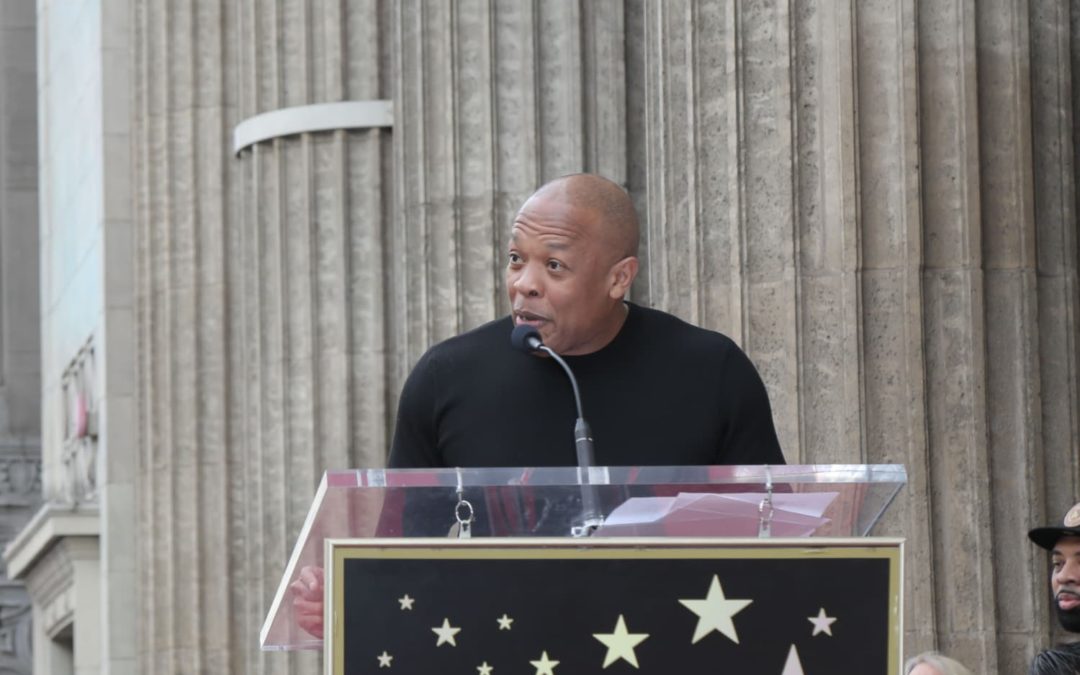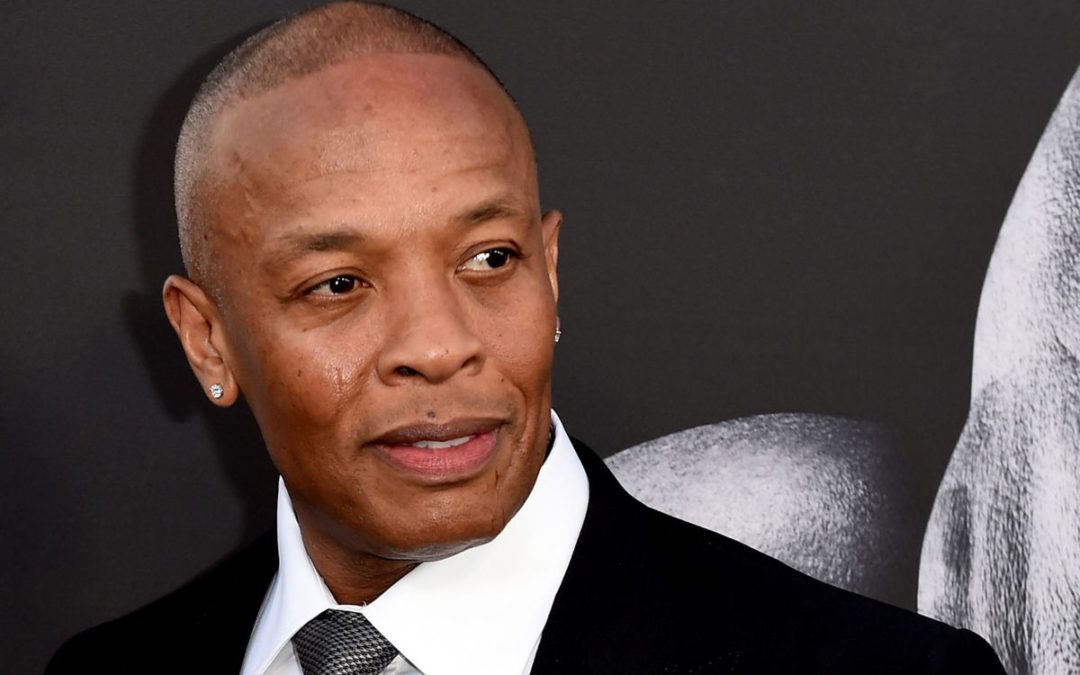
One Producer, One Album: Dr. Dre’s Game-Changing Vision
Image credit: Kathy Hutchins / Shutterstock.com
The Case for Single-Producer AlbumsIn the ever-evolving landscape of music production, a titan of the industry has spoken out, challenging the status quo and igniting a conversation that’s set to reverberate through recording studios worldwide. Dr. Dre, the legendary producer whose fingerprints are all over some of hip-hop’s most iconic tracks, has dropped a truth bomb that’s got everyone from aspiring beatmakers to seasoned veterans sitting up and taking notice. His stance? It’s time to bring back the era of the single-producer album.
Picture this: a world where albums aren’t a patchwork quilt of different sounds and styles, but a cohesive journey crafted by a single visionary. That’s the dream Dr. Dre is selling, and let’s be real, when the good doctor speaks, the music world listens. But why is this such a big deal? And what could it mean for the future of music as we know it?
Buckle up, music lovers, because we’re about to dive deep into the mind of a master producer and explore why this seemingly simple idea could be the shake-up the industry didn’t know it needed. From the creative process to the final product, we’re unpacking every angle of Dr. Dre’s game-changing philosophy. Get ready to see albums in a whole new light – this is one ride you won’t want to miss.
The Single-Producer Vision: Dr. Dre’s Game-Changing Perspective
When Dr. Dre drops knowledge, the music world sits up and takes notice. And boy, did he drop a bombshell recently. In a candid conversation that’s got everyone talking, the legendary producer laid out his vision for the future of album production – and it’s as bold as it is straightforward.
Picture this: you’re in the studio with Dr. Dre and Snoop Dogg, two icons casually rewriting the rules of the game. That’s exactly what went down on the Stephen A. Smith show, where Dre laid his cards on the table. “I like the idea of one producer on an album,” he declared, sending shockwaves through the industry. But he didn’t stop there. Dre went on to assert, “If you’re a producer, you should be able to produce the whole album.”
Now, let’s break this down. We’re not just talking about a preference here; we’re talking about a fundamental shift in how albums are created. Dre’s vision isn’t just about streamlining the process – it’s about creating a cohesive artistic statement from start to finish. It’s about giving producers the space to flex their creative muscles across an entire project, rather than just a track or two.
But here’s where it gets really interesting. Dre didn’t mince words when he expressed his dissatisfaction with the current state of affairs: “I don’t like the fact that there’s nine different producers on one album.” Boom. There it is. A direct challenge to the multi-producer model that’s become the norm in recent years.
This isn’t just talk from someone on the sidelines. This is Dr. Dre – the man behind some of the most groundbreaking albums in hip-hop history. When he speaks about production, it’s with the weight of decades of experience and countless platinum records behind him. His words carry the kind of gravitas that can shift industry paradigms.
So, what does this mean for artists, producers, and listeners? It’s a call to action, a challenge to rethink how albums are made. It’s an invitation to imagine a world where each album is a singular vision, a complete artistic statement from a single creative mind. And let’s be real – coming from Dr. Dre, it’s a challenge that’s hard to ignore.
As we dive deeper into this topic, we’ll explore the implications of Dre’s statement, the potential benefits and challenges of the single-producer model, and what it could mean for the future of music. Buckle up, folks – we’re about to go on a journey through the mind of a production genius.
The Multi-Producer Dilemma: Unpacking the Current Trend
Let’s face it – the music industry has been riding the multi-producer wave for a hot minute now. It’s become the norm to see album credits that read like a who’s who of production talent. But is more always better? Dr. Dre doesn’t think so, and he’s got us all questioning the status quo.
In today’s music scene, it’s not uncommon to find albums with a different producer for almost every track. On the surface, this might seem like a dream team approach – bringing together the best of the best to create a sonic masterpiece. But let’s peel back the layers and see what’s really going on.
First off, there’s the issue of cohesion. When you’ve got multiple producers working on an album, each bringing their own style and sound, it can sometimes feel like you’re listening to a playlist rather than a unified body of work. Sure, you might get a bunch of bangers, but do they tell a story together? Do they take you on a journey? That’s the question Dr. Dre is asking us to consider.
Then there’s the artist’s vision. In a multi-producer setup, the artist often becomes a juggler, trying to balance different production styles and make them fit their own artistic direction. It’s a tightrope walk that doesn’t always pay off. Sometimes, the result is an album that feels disjointed, lacking the kind of narrative flow that can make a good album great.
But let’s not forget the business side of things. The multi-producer model has become popular for a reason. It spreads the risk, potentially increases the album’s appeal to different audiences, and can bring in multiple fan bases. It’s a strategy that’s worked well for many artists, leading to chart-topping hits and commercial success.
However, Dr. Dre’s critique forces us to ask: at what cost? Are we sacrificing artistic integrity for commercial viability? Are we losing something essential in the pursuit of diversity?
The multi-producer trend also reflects the collaborative nature of modern music-making. In an era where features and crossovers are the norm, having multiple producers on an album can be seen as an extension of this collaborative spirit. It’s a way of bringing different flavors and perspectives into the mix.
But Dr. Dre’s stance challenges this notion. He’s suggesting that true collaboration might actually come from a deeper, more sustained relationship between an artist and a single producer. It’s about creating a shared vision, a unified sound that carries through from the first track to the last.
As we continue to unpack Dr. Dre’s perspective, we’ll explore how the single-producer model might address these issues and potentially revolutionize the way we think about album production.
When Dr. Dre speaks about the benefits of having a single producer for an entire album, he’s not just talking about creative cohesion – he’s also touching on a crucial technical aspect of music production. The consistency in sound and mix that can be achieved with this approach is a game-changer, and it’s something that shouldn’t be overlooked.







RECENT COMMENTS